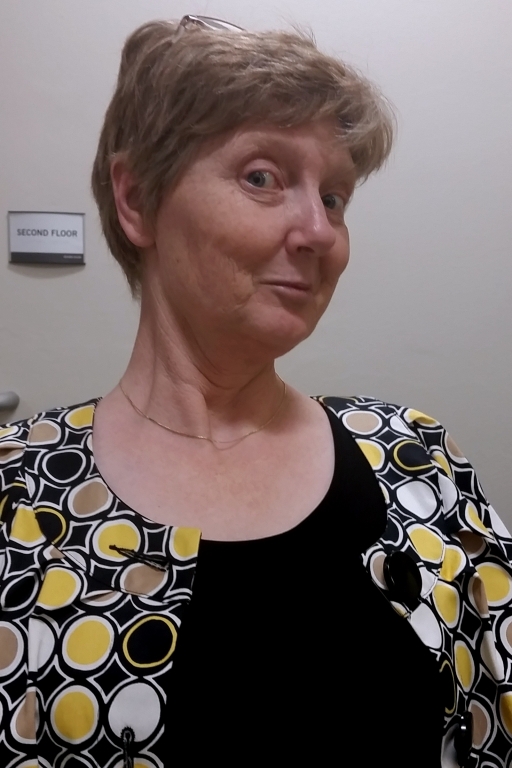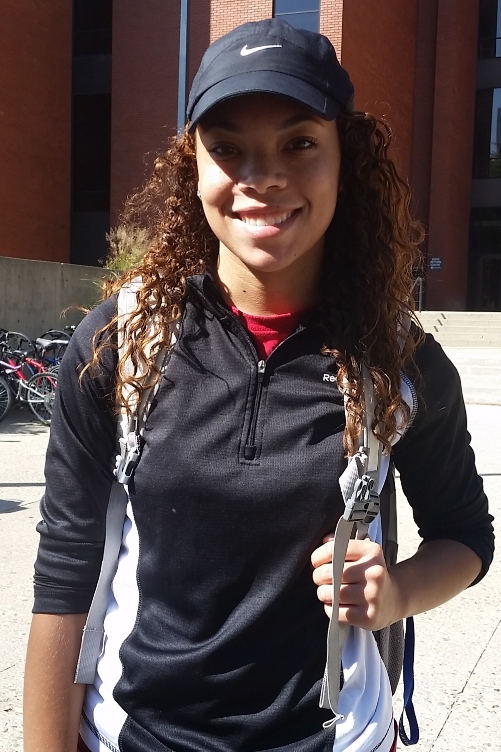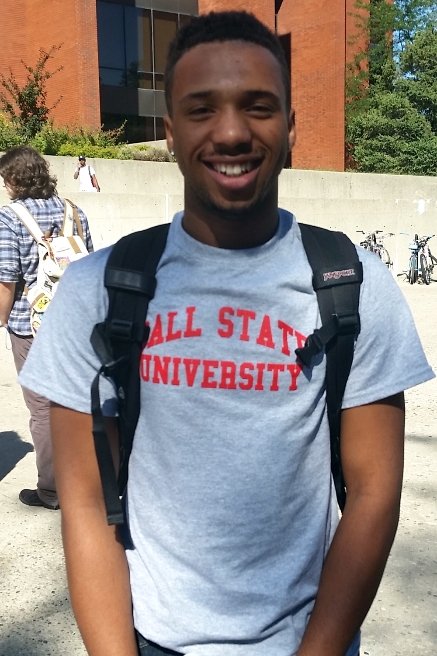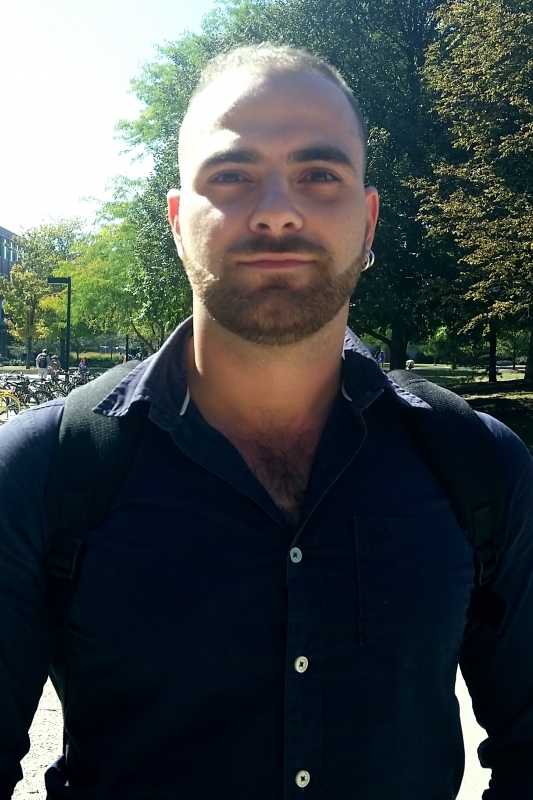|
A 14-year-old Muslim boy was arrested in Irving, Texas, after teachers mistook a homemade clock for a bomb, according to reporting by the Associated Press.
Ahmed Mohamed brought the clock he made to show his engineering teacher, according to the AP. Another teacher raised the concern it looked like a bomb and brought the principal and several police officers to investigate.
Mohamed has not been charged, but was suspended from school for three days. His father said he believes this was an act of Islamophobia.
We asked students and faculty around campus for their thoughts. Let us know what you think in the comments!
|
 |
 |
| Juli Thorson, philosophy professor |
Taylorann Smith, sophomore aquatic biology major |
|
Q:
What was your initial reaction to hearing about this?
A:
“We live in a complex world.”
Q:
Do you think that [the student being Muslim] plays a role in his arrest?
A:
“I’m sure it does, because even though we attempt not to be biased and bigoted, it still has [created something] within all of us, and so we still have to struggle against it.”
Q:
Looking at this nation’s past history with bomb threats and school shootings, do you think that also could have played a role in the way they reacted, or do you think it was more specific about his religion?
A:
“Oh, sure. We’re hypersensitive to bomb threats. ... We’ve changed a lot in thinking about the threats to our schools. My dad was an elementary school principal, and for a while they were getting bomb threats and the security people said, ‘Ignore them and they will stop.’ And they did. But of course now they could not do that. Legal liabilities would not let us do that.”
|
Q:
What was your initial reaction to hearing about this?
A:
“I was shocked when you said it was a clock. I wonder why they would think that it was a bomb in the first place if it was just a clock. I know that there are a lot of students, even in Indiana, that I’ve heard have made bombs and have gotten arrested, but I don’t know how you can kind of misunderstand a bomb and a clock.”
Q:
The student who was arrested was Muslim. Do you think that might have played a role in his arrest?
A:
“Oh, most definitely, yes. Just a subconscious type of bias, I guess, towards that group of people because of 9/11. We’ve always been on our toes toward different people since then. Even at airports, the random checks aren’t as random as you think. I’ve seen that a lot."
Q:
Looking at this nation’s past history with bomb threats and school shootings, do you think that also could have played a role in the way they reacted, or do you think it was more specific about his religion?
A:
“I mean, they both honestly play a part together, but I say the vital thing would be because of his culture, not because of what happened in America. [School shootings] could be part of it, but not as big as his race.”
|
 |
 |
| Keenan Hutchinson, sophomore public relations major |
Ege Yener, senior architecture major |
|
Q:
What was your initial reaction to hearing about this?
A:
“I thought people overreacted, that was my initial thing. But I was like, ‘I don’t really know if it really is a bomb, no one really knows if it is a bomb except for him.’”
Q:
The student who was arrested was Muslim. Do you think that might have played a role in his arrest?
A:
“Definitely, because Americans tend to jump the gun with minorities and immigrants and stuff like that. I definitely feel like him being a Muslim kid kind of enhanced our thought of it being a bomb.”
Q:
Looking at this nation’s past history with bomb threats and school shootings, do you think that also could have played a role in the way they reacted, or do you think it was more specific about his religion?
A:
“I think it’s kind of an equal mix because, like I said, Americans, we tend to profile people based off of their religion or skin color and things like that. Also, us having so many bomb threats and so many things happen in America, we’re kind of scared, so our first thing is to jump the gun when someone is doing something that they’re really not doing.”
|
Q:
What was your initial reaction to hearing about this?
A:
“First of all, I am from Turkey, and I am Muslim as well. It’s really sad to hear. The biggest reason I think that he got arrested was because of his choice of religion. His being Muslim I think played a big role in the circumstance. They should have been more careful and at least investigated the situation before they decided. And actually, you know, it’s spectacular that a kid can actually build a clock.”
Q:
Looking at this nation’s past history with bomb threats and school shootings, do you think that also could have played a role in the way they reacted, or do you think it was more specific about his religion?
A:
“I don’t know what they did say regarding the situation, like the federal government. I don’t know what the response was. But yeah, it might be because there was a lot of bombing going on, and I think it might be some sense of being secure. But arresting someone just because you see there is a clock, I think, no, I think it has nothing to do with that. ... Maybe, but I think most of the case here is that they were just looking at the religion and what he believed in. That might not be the case, but I have heard different stories from my friends who are also Muslim, and they’re having the same kinds of issues regarding their identity and who they are and what kind of status that they hold in life. I think it’s wrong to act like that.”
|
|
A 14-year-old Muslim boy was arrested in Irving, Texas, after teachers mistook a homemade clock for a bomb, according to reporting by the Associated Press.
Ahmed Mohamed brought the clock he made to show his engineering teacher, according to the AP. Another teacher raised the concern it looked like a bomb and brought the principal and several police officers to investigate.
Mohamed has not been charged, but was suspended from school for three days. His father said he believes this was an act of Islamophobia.
We asked students and faculty around campus for their thoughts. Let us know what you think in the comments!
|
 Juli Thorson, philosophy professor
Juli Thorson, philosophy professor
Q:
What was your initial reaction to hearing about this?
A:
“We live in a complex world.”
Q:
Do you think that [the student being Muslim] plays a role in his arrest?
A:
“I’m sure it does, because even though we attempt not to be biased and bigoted, it still has [created something] within all of us, and so we still have to struggle against it.”
Q:
Looking at this nation’s past history with bomb threats and school shootings, do you think that also could have played a role in the way they reacted, or do you think it was more specific about his religion?
A:
“Oh, sure. We’re hypersensitive to bomb threats. ... We’ve changed a lot in thinking about the threats to our schools. My dad was an elementary school principal, and for a while they were getting bomb threats and the security people said, ‘Ignore them and they will stop.’ And they did. But of course now they could not do that. Legal liabilities would not let us do that.”
|
 Taylorann Smith, sophomore aquatic biology major
Taylorann Smith, sophomore aquatic biology major
Q:
What was your initial reaction to hearing about this?
A:
“I was shocked when you said it was a clock. I wonder why they would think that it was a bomb in the first place if it was just a clock. I know that there are a lot of students, even in Indiana, that I’ve heard have made bombs and have gotten arrested, but I don’t know how you can kind of misunderstand a bomb and a clock.”
Q:
The student who was arrested was Muslim. Do you think that might have played a role in his arrest?
A:
“Oh, most definitely, yes. Just a subconscious type of bias, I guess, towards that group of people because of 9/11. We’ve always been on our toes toward different people since then. Even at airports, the random checks aren’t as random as you think. I’ve seen that a lot."
Q:
Looking at this nation’s past history with bomb threats and school shootings, do you think that also could have played a role in the way they reacted, or do you think it was more specific about his religion?
A:
“I mean, they both honestly play a part together, but I say the vital thing would be because of his culture, not because of what happened in America. [School shootings] could be part of it, but not as big as his race.”
|
 Keenan Hutchinson, sophomore public relations major
Keenan Hutchinson, sophomore public relations major
Q:
What was your initial reaction to hearing about this?
A:
“I thought people overreacted, that was my initial thing. But I was like, ‘I don’t really know if it really is a bomb, no one really knows if it is a bomb except for him.’”
Q:
The student who was arrested was Muslim. Do you think that might have played a role in his arrest?
A:
“Definitely, because Americans tend to jump the gun with minorities and immigrants and stuff like that. I definitely feel like him being a Muslim kid kind of enhanced our thought of it being a bomb.”
Q:
Looking at this nation’s past history with bomb threats and school shootings, do you think that also could have played a role in the way they reacted, or do you think it was more specific about his religion?
A:
“I think it’s kind of an equal mix because, like I said, Americans, we tend to profile people based off of their religion or skin color and things like that. Also, us having so many bomb threats and so many things happen in America, we’re kind of scared, so our first thing is to jump the gun when someone is doing something that they’re really not doing.”
|
 Ege Yener, senior architecture major
Ege Yener, senior architecture major
Q:
What was your initial reaction to hearing about this?
A:
“First of all, I am from Turkey, and I am Muslim as well. It’s really sad to hear. The biggest reason I think that he got arrested was because of his choice of religion. His being Muslim I think played a big role in the circumstance. They should have been more careful and at least investigated the situation before they decided. And actually, you know, it’s spectacular that a kid can actually build a clock.”
Q:
Looking at this nation’s past history with bomb threats and school shootings, do you think that also could have played a role in the way they reacted, or do you think it was more specific about his religion?
A:
“I don’t know what they did say regarding the situation, like the federal government. I don’t know what the response was. But yeah, it might be because there was a lot of bombing going on, and I think it might be some sense of being secure. But arresting someone just because you see there is a clock, I think, no, I think it has nothing to do with that. ... Maybe, but I think most of the case here is that they were just looking at the religion and what he believed in. That might not be the case, but I have heard different stories from my friends who are also Muslim, and they’re having the same kinds of issues regarding their identity and who they are and what kind of status that they hold in life. I think it’s wrong to act like that.”
|




 Juli Thorson, philosophy professor
Juli Thorson, philosophy professor
 Taylorann Smith, sophomore aquatic biology major
Taylorann Smith, sophomore aquatic biology major
 Keenan Hutchinson, sophomore public relations major
Keenan Hutchinson, sophomore public relations major
 Ege Yener, senior architecture major
Ege Yener, senior architecture major




